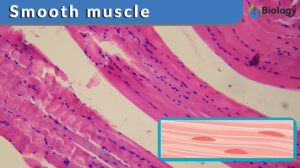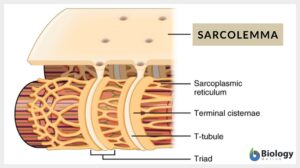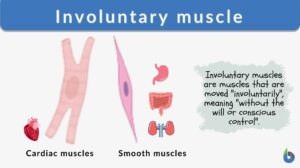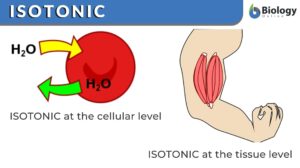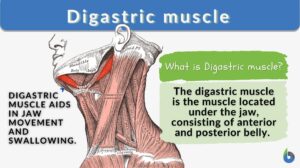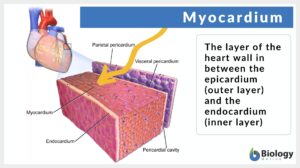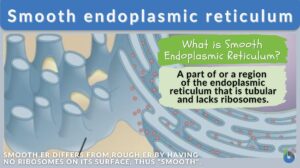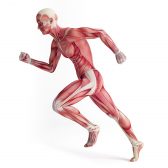Search Results for: muscle contraction
Muscular system
Muscular System Definition What is the muscular system? The muscular system is a system that includes muscle cells and... Read More
Antagonistic Muscle
Definition of Antagonistic Muscle What does the term “antagonistic” mean? As the name suggests, the word antagonistic... Read More
Smooth muscle
The smooth muscle can be described as a type of muscle in the human body that is non-striated and involuntary in action.... Read More
Sarcolemma
Sarcolemma Definition What is the sarcolemma? It is the thin, transparent, extensible plasma membrane of the muscle cell.... Read More
Involuntary muscle
A muscle act typically either under the control of the will or without conscious control. Muscles that can be controlled at... Read More
Hypertrophy
Hypertrophy Definition Hypertrophy refers to the enlargement or increase in the size of an organ or tissue due to the... Read More
Endoplasmic reticulum
Endoplasmic Reticulum Definition The endoplasmic reticulum is a membrane-bound organelle in cells of eukaryotic cells... Read More
Muscle contraction
muscle contraction A process leading to shortening and/or development of tension in muscle tissue. Muscle contraction occurs... Read More
Digastric muscle
Digastric Definition The digastric muscle is a paired muscle located under the jaw, consisting of the anterior and... Read More
Myocardium
Myocardium Definition What is the myocardium of the heart? It is the muscular middle layer of the heart that is... Read More
Skeletal muscle
Definition noun, plural: skeletal muscles A voluntary, striated (vertebrate) muscle that is associated with the skeleton,... Read More
Smooth endoplasmic reticulum
Smooth Endoplasmic Reticulum Definition Smooth endoplasmic reticulum (sER) is part of or a region in the endoplasmic... Read More
Peristalsis
What is Peristalsis? Peristalsis is the series of involuntary, wave-like muscle movements in the cylindrical, hollow tube... Read More
Circulation
Blood Blood is composed of a liquid, plasma, and blood cells such as erythrocytes (red blood cells,) leukocytes (white... Read More
Voluntary muscle
Definition noun, plural: voluntary muscles A muscle that can be controlled voluntarily Supplement Some of the muscles of the... Read More
Digestion and Absorption of Food
The gastrointestinal (GI) system includes the gastrointestinal tract (mouth, pharynx, esophagus, stomach, small intestine,... Read More
Regulation of Organic Metabolism, Growth and Energy Balance
Organic Metabolism Events of Absorptive and Post-absorptive States. The absorptive state is the period during which... Read More
Homeostasis
Homeostasis is the tendency not to stray from the range of favorable or ideal internal conditions. Such conditions must be... Read More
Muscle tissue
Definition noun, plural: muscle tissues An animal tissue capable of contracting, and therefore enables movement or tension... Read More
Muscle cell
Definition noun, plural: muscle cells Any of the long, tubular mature contractile cells that make up the muscle... Read More
Sarcoplasmic reticulum
Definition noun plural: sarcoplasmic reticula (cell biology) The special type of smooth endoplasmic reticulum found in... Read More
Hypertonic
Hypertonic Definition Hypertonic is a term used to describe an entity being in the state of hypertonicity, where there is a... Read More
Fixator muscle
Definition noun, plural: fixator muscles (anatomy) A muscle that serves as a stabilizer of one part of the body during... Read More
Prostaglandin
Definition noun, plural: prostaglandins A group of eicosanoids, structurally characterized as 20-carbon unsaturated fatty... Read More
Control of Body Movement
Motor Control Hierarchy A motor program is the pattern of neural activities required to perform a movement is created and... Read More
Agonist muscle
Definition noun A muscle that contracts while another muscle relaxes Supplement Muscles may be classified according to the... Read More
Microfilament
Definition noun plural: microfilaments mi·cro·fil·a·ments, mī'krō-fil'ă-mĕnts A thin, helical, single-stranded... Read More
Cytoskeleton
Definition noun plural: cytoskeletons cy·to·skel·e·ton (cell biology) The lattice or internal framework of a cell... Read More
Kidneys and Regulation of Water and Inorganic Ions
Renal Functions Kidneys remove/add substances from/to the plasma.Regulate water concentration, inorganic ion... Read More
Jaw jerk reflex
Definition noun A stretch reflex that manifests as the contraction of the masseter and the temporalis muscles in response to... Read More
Abdominal reflex
Definition noun, plural: abdominal reflexes Abdominal wall muscle contraction of the umbilicus toward the abdominal quadrant... Read More
Stretch reflex
Definition noun A reflex contraction of a muscle when the muscle proprioceptors (e.g. muscle spindles) are... Read More



